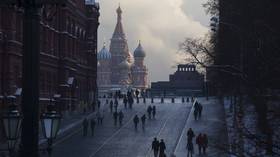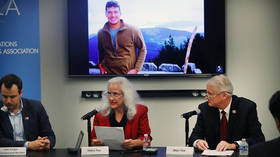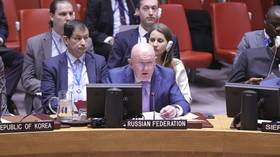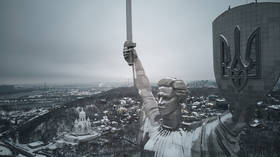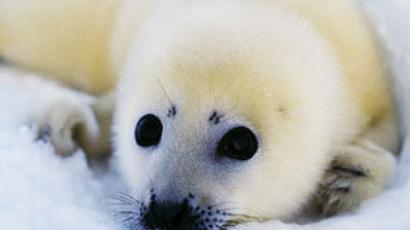Russia to clean Arctic from poisonous Soviet heritage
During his visit to the Russian Arctic, Vladimir Putin decided to clean the area from countless barrels of oil remaining from the Soviet era.
The nearest city is 3,000 kilometers away from the Franz Josef Land archipelago in the Arctic Ocean, while the North Pole is just 800.
It may look like a place where man has never set foot, but even deep snow cannot hide this land's bitter secrets of the past.
Alexandra Land is home to thousands of barrels of fuel and lubricants. They were brought here in the 1960s for Soviet military bases, but after the collapse of the Soviet Union, they were no longer needed, and were just left here, as taking them away seemed too expensive. But economy eventually clashed with ecology, as the leaking fuel and rusty metal pose a serious environmental threat, a case of past heritage threatening future life in the area.
At least five endangered species live in the archipelago. And if nothing is done today, ecologists warn, there will no be tomorrow for them.
“When the spring arrives, poisoned rivers will flow into the Barents Sea and then to the ocean… oil patches will cover the water,” said Vyacheslav Rozhnov, a biological scientist and deputy director of the Russian Academy of Sciences’ A.N. Severtsov Institute of Ecology and Evolution. “And these flows will kill everything along their path. Among them are beluga whales, walruses and polar bears.”
The scientists don't have the authority to take the barrels away. But they've brought the issue to the attention of those that do.
Putin was far from impressed with what he saw and he said Russia must be responsible for the Soviet legacy in the Arctic region, and will do its best not to allow this cemetery of barrels to become a graveyard for wildlife.
“The level of pollution is 6 times higher than normal here!” Putin exclaimed. “We need to do a major cleanup of the Arctic. This needs to be done through cooperation between the state and private investors, but of course the state should take the first steps, and we need to do it as soon as possible.”
Experts say words may be easy, but action will be a lot tougher.
“We only have four months a year when ships can reach this land and can go through the ice,” said Roman Ershov from the Franz Josef Land Reserve. “A weak infrastructure will also be a serious obstacle. I think it'll take up to 10 years or even more.”
But at least it seems that the problem that has been frozen for so long is finally showing signs of melting away.




